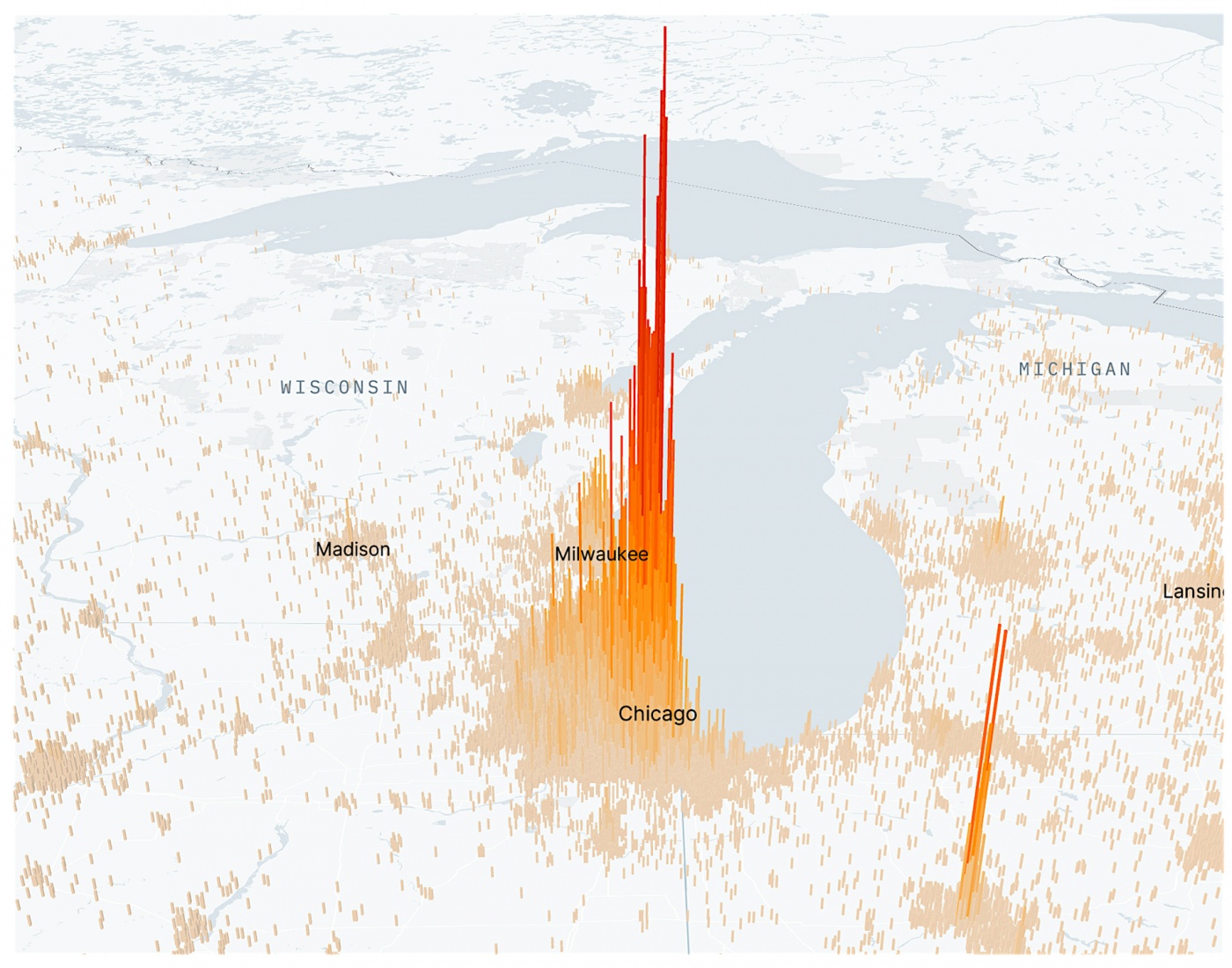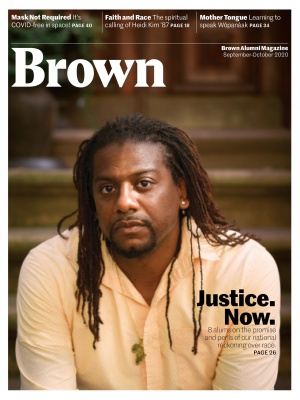Apartment units per skyscraper. Yearly tax returns. What might look like a jumble of statistics to some people appears as raw potential to Will Shapiro ’04, cofounder and CEO of the data analytics and artificial intelligence company Topos. The company focuses on urban geography and its laser-sharp analysis of location is exceptionally well-suited to tracking the novel coronavirus.
“It’s a real-time way of understanding COVID in relation to a lot of other relevant variables that have to do with place: the way we live together in cities, the way we commute to work, and also the densities of different vulnerable populations,” explains Shapiro. The popularity of the Topos COVID-19 Compiler map, featured on The Rachel Maddow Show in April, lies in its ability to combine seemingly disparate bodies of data on a microcosmic level to both identify current coronavirus trouble spots and predict future ones.
Analysis of tax-return data in Topos’s home base of New York—one of the only states where statistics can be accessed by zip code instead of by county—yielded striking results about the relationship between wealth, living environment, and the virus. “If you’re in a neighborhood where the average salary is over $100K,” says Shapiro, “you’re half as likely to have COVID than if you’re in a neighborhood where it’s under $100K.”
The team is constantly adjusting mapping strategies to account for new trends. Research predicted, for instance, what was later borne out: that despite its status as ground zero for the virus, New York’s rate of infection would soon pale compared to other states. By late spring, Shapiro described Georgia as “just terrifying,” adding that “a lot of the states that are starting to reopen, like Nebraska, are very scary places.” Regardless of how the virus evolves, however, the goal at Topos remains the same: keep up with COVID to keep people safe.





